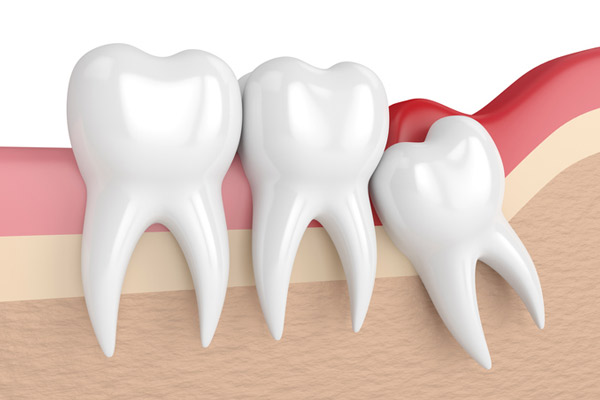Wisdom Teeth Removal The wisdom teeth, or your third molars, are the last of your adult teeth to come in. Where most of the adult teeth are in by around the age of 13, the wisdom teeth do not begin to erupt until your late teens to early 20s. This is actually how they got their name. The last to erupt, the wisdom teeth are the most likely to become impacted. Impacted wisdom teeth can cause serious issues and often need to be extracted. M Street Dental can help. The wisdom teeth, or your third molars, are the last of your adult teeth to come in. Where most of the adult teeth are in by around the age of 13, the wisdom teeth do not begin to erupt until your late teens to early 20s. This is actually how they got their name. The last to erupt, the wisdom teeth are the most likely to become impacted. Impacted wisdom teeth can cause serious issues and often need to be extracted. M Street Dental can help.How Do Wisdom Teeth Become Impacted?An impacted tooth is one that cannot properly erupt through the gums. Your wisdom teeth can become impacted for many reasons. Some of the most common causes of impacted wisdom teeth include:
Effects of Impacted Wisdom TeethWhen the wisdom teeth are impacted, many issues can develop. Issues caused by impacted wisdom teeth include:
Removing Impacted Wisdom TeethWhen your wisdom teeth are impacted, the best way to treat them is to remove them. Wisdom tooth removal is done with a surgical extraction. This procedure is performed under a local anesthetic as well as sedation. The local anesthetic prevents you from feeling any pain while sedation helps you to feel relaxed and comfortable. A surgical extraction begins with incisions in your gums near the impacted teeth. This exposes the teeth under the gums, as well as the surrounding bone. Next, the impacted teeth are removed. This may require the removal of a small amount of bone. The teeth may need to be broken into sections and removed in separate pieces. Once the teeth have been removed, the sockets are cleaned, and your gums are sutured closed. If your wisdom teeth are causing significant pain at the back of your jaw and you are finding it difficult to move your mouth, they may be impacted and in need of removal. Call M Street Dental at 253-833-9062 today to schedule your appointment. |